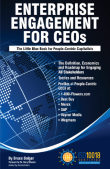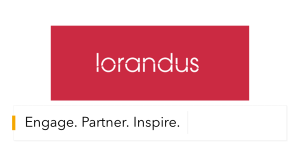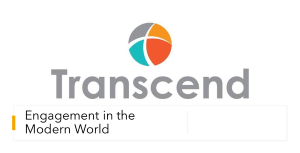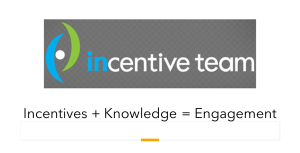Stakeholder Capitalism Update: Public Disclosures Remain Paltry, Employee Engagement Hits New Lows
Here’s a wrap-up of the latest news on Stakeholder Capitalism, Human Capital Reporting and Metrics, and Enterprise Engagement.
 A new study confirms others before it that public companies are sharing little about their human capital management practices in Securities & Exchange Commission disclosures…A recent survey by Gallup finds that employee engagement worldwide is at record lows…The US Federal Reserve chairman says that a more inclusive capitalism will help the economy…UK organization promotes a Good Company Charter for companies…..An article in Fortune magazine suggests that CMOs need to take charge in Stakeholder Capitalism-oriented companies.
A new study confirms others before it that public companies are sharing little about their human capital management practices in Securities & Exchange Commission disclosures…A recent survey by Gallup finds that employee engagement worldwide is at record lows…The US Federal Reserve chairman says that a more inclusive capitalism will help the economy…UK organization promotes a Good Company Charter for companies…..An article in Fortune magazine suggests that CMOs need to take charge in Stakeholder Capitalism-oriented companies. - What Public Companies Are Reporting in Human Capital Disclosures? Not Much, Study Finds...
- Gallup 2021 Study: Only About 20% of Employees Are Engaged in Their Work...
- Federal Reserve Chairman Jerome Powell: US Needs More Inclusive Prosperity
- Coming to the US? A Good Company Charter?
- Who Will Lead Stakeholder Capitalism—CHROs or CMOs?
What Public Companies Are Reporting in Human Capital Disclosures? Not Much, Study Finds....
In a paper in Harvard Law School Forum on Corporate Governance by Andrew G. Gordon, David Larcker, and Courtney Yu, the authors write:
"We find that while some companies are transparent in explaining the philosophy, design, and focus of their Human Capital Management (HCM), most disclosure is boilerplate. Companies infrequently provide quantitative metrics. One major focus of early HCM disclosure is to describe diversity efforts. Another is to highlight safety records. Few provide data to shed light on the strategic aspects of HCM: talent recruitment, development, retention, and incentive systems. As such, new HCM disclosure appears to contribute to the length but not the informativeness of 10-K disclosures.”
"The new rules clearly led to an increase in disclosure length. The typical HCM filing has a median word length of 782, a 9-fold increase over the previous year’s disclosure (84 words). Current disclosure is approximately the length of an op-ed piece in a national newspaper. While most companies increased disclosure length materially, not all did. 20% of our sample left disclosure largely the same.”
"Diversity and inclusion are the areas of HCM most frequently added this year (61% of companies). This was followed by employee development efforts (55%), safety (51%), and compensation practices (37%). Other areas voluntarily disclosed are employee engagement efforts (25%), employee turnover or tenure information (22%), culture (19%), recruiting practices (12%), mental health (7%), pay equity (5%), and succession planning (5%)."
The reality is that companies do not wish to disclose HCM information because, as the authors state, CEOs consider the information competitive.
Gallup 2021 Study: Only About 20% of Employees Are Engaged in Their Work....
Gallup estimates the global cost to the economy of nearly $8 trillion in lost productivity in this recent report.
Federal Reserve Chairman Jerome Powell: US Needs More Inclusive Prosperity
Reports the New York Times, Powell states: “There’s a growing realization, really across the political spectrum, that we need to achieve more inclusive prosperity.”
Addressing this issue is better for the economy, he argues. Speaking of lagging economic mobility in the United States, he adds: “These things hold us back as an economy and as a country.”
The Fed cannot solve issues of economic inequality itself, he said. Congress would need to play a role in establishing “a much broader set of policies.”
Coming to the US? A Good Company Charter?
This UK not-for-profit aims to promote Stakeholder Capitalism principles through a certification program for companies committed to:
1. Real living wages
2. Fairer hours and contracts
3. Employee well-being
4. Employee representation
5. Diversity and inclusion
6. Environmental responsibility
7. Paying fair taxes
8. Customer satisfaction
9. Ethical sourcing
10. Prompt payments to supplier
The web site read says (note British spelling): “The time is right for a ‘Good Business Charter’ to encourage responsible business behaviour and to publicly acknowledge those organisations who exhibit such behaviour. Our aim is to inspire as many organisations as possible to change their behaviour, where required, in order to sign up, which should in turn encourage wider good business practice. To this end we have made the GBC simple, streamlined and free in the first year with very low annual costs thereafter.”
Who Will Lead Stakeholder Capitalism—CHROs or CMOs?
In this article in Fortune, Bob Liodice, CEO of the National Association of Advertisers, writes: “With stakeholder capitalism on the rise, CEOs are relying on CMOs to help their companies be both a force for good and a force for growth.”
Here are some highlights:
“During the pandemic, CEOs… were suddenly tasked with answering to the concerns of a broader suite of stakeholders. Beyond shareholders and customers, CEOs were challenged to address the needs of suppliers, employees, investors, and, most notably, the general public. The term ‘stakeholder capitalism’ became the buzzword of the year to describe the new goal of synchronizing business operations with the interests and the needs of humanity.”
“As we now approach a new normal for businesses, CEOs must empower their CMOs to go beyond traditional advertising and, instead, help the entire enterprise create value for its stakeholders.”
“This new mission for CMOs is about synchronizing a business’s operations with its marketing message to positively impact society and drive revenue. It is about eliminating the view of marketing as a ‘business to business’ or ‘business to consumer’ concern. Instead CMOs must view it as a calling to find solutions for stakeholders that drive business growth—and thus create ‘brands for humans.’”
“CEOs must demand more from marketing, and CMOs must deliver a Brands for Humans strategy. Brands for Humans is a new framework, developed by Association of National Advertisers’ Global CMO Growth Council, that is focused on: Brand purpose; Sustainability; Diversity, equity and inclusion; Brand and consumer safety.”
This strategic overhaul will also require changes in education. “University presidents must reframe the way they teach marketing’s role in business. They must work together with corporations to prepare students for rewarding careers that take a more holistic view of marketing as a tool to influence not just brand perception, but business operations.”
Master the “S” of Environmental, Social, Governance (ESG), A.k.a. Stakeholder Capitalism
The Enterprise Engagement Alliance at TheEEA.org is the world’s first and only organization that focuses on outreach, certification and training, and advisory services to help organizations achieve their goals by fostering the proactive involvement of all stakeholders. This includes customers, employees, distribution and supply chain partners, and communities, or anyone connected to an organization’s success.
Training and Thought Leadership
- Founded in 2008, the Enterprise Engagement Alliance provides outreach, learning and certification in Enterprise Engagement, an implementation process for the “S” or Social of Stakeholder Capitalism and Human Capital Management and measurement of engagement across the organization.
- The Enterprise Engagement Alliance provides a training and certification program for business leaders, practitioners, and solution providers, as well as executive briefings and human capital gap analyses for senior leaders.
- The EEA produces an education program for CFOs for the CFO.University training program on Human Capital Management.
- Join the EEA to become a leader in the implementation of the “S” of ESG and Stakeholder Capitalism.
- The ESM information portal and The Enterprise Engagement Advisors Network solution provider marketplace cover all aspects of stakeholder engagement, and the EEA information library lists dozens of resources.
- The RRN information portal and Brand Media Coalition marketplace address the use of brands for gifting, incentives, recognition, and promotions. The BMC information library provides information and research resources.
Video Learning
The EEA Human Capital Management and ROI of Engagement YouTube channel features a growing library of 30- to 60-minute panel discussions with leading experts in all areas of engagement and total rewards.
- Enterprise Engagement for CEOs: The Little Blue Book for People-Centric Capitalists. A quick guide for CEOs.
- Enterprise Engagement: The Roadmap 5th Edition implementation guide. A comprehensive textbook for practitioners, academics, and students.
Enterprise Engagement Advisory Services
The Engagement Agency helps:
- Organizations of all types develop strategic Stakeholder Capitalism and Enterprise Engagement processes and human capital management and reporting strategies; conduct human capital gap analyses; design and implement strategic human capital management and reporting plans that address DEI (Diversity, Equity, and Inclusion), and assist with managed outsourcing of engagement products and services.
- Human resources, sales and marketing solution providers profit from the emerging discipline of human capital management and ROI of engagement through training and marketing services.
- Investors make sense of human capital reporting by public companies.
- Buyers and sellers of companies in the engagement space or business owners or buyers who seek to account for human capital in their mergers and acquistions.
For more information: Contact Bruce Bolger at Bolger@TheICEE.org or call 914-591-7600, ext. 230.



















